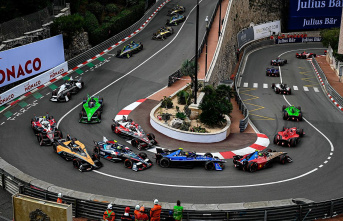An exclusive data analysis by stern and RTL with data from Autoscout24 shows for the first time how enormously the prices for the most popular car models in Germany have risen in recent months.
For example, the VW Golf went from €15,279 in 2019 to over €20,000 this summer – a price increase of more than 30 percent. On average, the top 5 in this segment (VW Golf, VW Tiguan, Audi A3
The good news: There are comparable models in almost all segments that can keep up in terms of quality, but have not risen as much in price so far. We show the cheapest alternatives to the most coveted used cars in Germany.
If you are mainly on the road in the city and only want to transport small purchases, you can use the Polo, Fiesta, Corsa
The Golf has been one of the most popular cars in German registration statistics for years. If you are looking for a reliable compact, you often end up with the Wolfsburg model. The price of the Golf has not been a real "Volkswagen" for a long time - but in recent months it has gone up significantly.
It is worth taking a look at the Alfa Romeo 147, Chrysler PT Cruiser and Peugeot 307 as a cheap alternative to the Golf, Opel Astra and Ford Focus.
If you want to transport the family and a little more luggage, you are welcome to take a look at the Audi A4
Inexpensive alternatives to the Audi A4, VW Passat, BMW 3 Series, Mercedes C-Class
Models from the upper middle class are popular with both private individuals and companies. E-Class, BMW 5 Series and Audi A6 often already offer luxurious comfort and high quality. However, this has its price: on average, the cars currently cost 34,000 euros, and since 2019 the models have even become 26 percent more expensive.
The range in the upper middle class is comparatively small: Many manufacturers no longer have cars in this segment, making it difficult to find alternatives. Nevertheless, cheap models such as the Volvo 850, which is currently available for around 6000 euros, are also available here.
German car manufacturers feel particularly comfortable in the premium segment: the S-Class, BMW 7 Series and Audi A8 are the figureheads of the automotive industry in the luxury class – albeit at a higher price. The good thing: In this segment, manufacturers are still producing a large number of new cars. As a result, used car prices only rose moderately by 16 percent.
Alternatives to Audi, BMW and Mercedes can be found in more exotic models such as the Hyundai Genesis:
Anyone who has decided on a manufacturer can still save money with a few simple tips, despite the rise in used car prices. Stefan Schneck, Head of Sales at AutoScout24, recommends placing search requests on vehicle platforms. Settings for the budget can be made directly there and the search is easier than with classified ads.
Another tip from the expert: "Buyers with a little more knowledge of the automotive market can pay particular attention to the last series before so-called 'facelifts' or entire model changes. Because the pre-facelift models are often sold with noticeable price advantages." In terms of quality, these models often hardly differ and optically in some cases only in details such as other headlights, bumpers and spoilers.
For new car buyers, Schneck recommends relying on special leasing offers. In the short term, more flexible ownership models such as a car subscription can also be used to bridge the gap.








